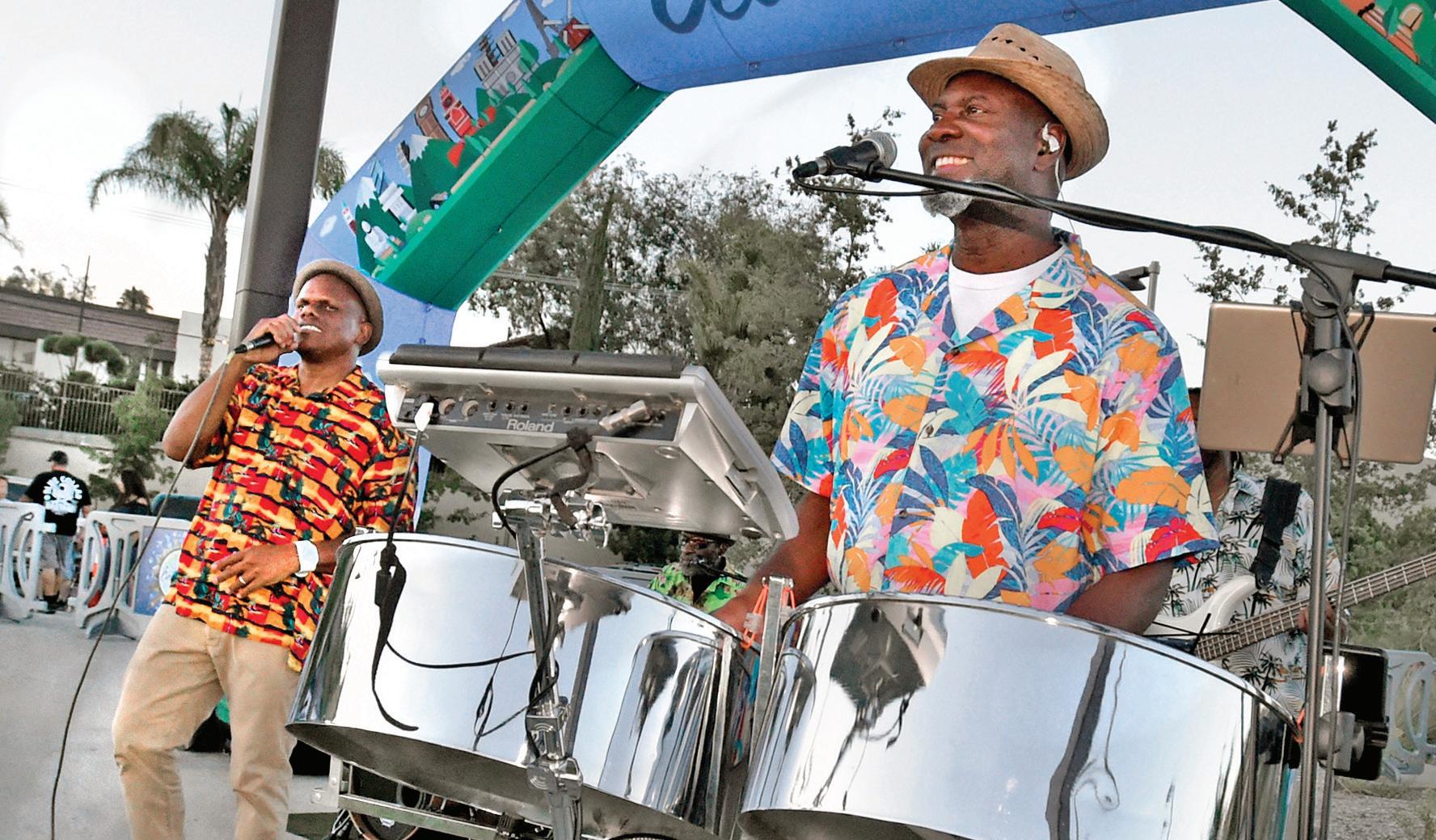
2 minute read
Resident Reflects on Breast Cancer Battle
Canyon Country Resident Reflects on Her Battle with Breast Cancer
PHOTO BY DAN WATSON / THE SIGNAL
Signal Staff Writer
Longtime Canyon Country resident Patty Rowdon had just lost her mother to cancer a few months earlier when she received the news: She had breast cancer.
Rowdon’s mother fought a 12-year battle with non-Hodgkin’s lymphoma, a cancer that starts in the body’s white blood cells, before contracting COVID-19 in June 2020.
“Me and my mom got COVID at the same time, and we thought she was just going to kick it, but it was that length of time that she had to be off of her meds, and then with the COVID and her immune system so depleted,” Rowdon said.
After her mother died, Rowdon decided it was time to take care of herself, going in for a mammogram she was overdue for by about a year.
It was then doctors found something unusual on her breast. After a biopsy, she was diagnosed with breast cancer.
“I was in such shock,” Rowdon said. “Just the idea of me telling my sisters — because my sisters and I are really close — I got diagnosed with breast cancer … it was hard.”
While the cancer was localized in the duct, meaning they’d caught it very early, doctors still wanted to remove it.
“Thousands of women across the United States and worldwide are diagnosed with (ductal carcinoma in situ),” said Dr. Rena Callahan, associate clinical professor of medicine, hematology/oncology, at UCLA. “And while it’s not something that is immediately life-threatening, it can’t go untreated for too long.”
Ironically enough, her mother’s oncologist became her oncologist, which both Callahan and Rowdon agreed helped to make her more comfortable.
“Patty was an incredible advocate for her mom … Patty (and her) sisters were very involved in their mom’s care and were an integral part of that, so I had seen her many times before meeting her as a patient,” Callahan said.
“The fact that we already knew each other, and there was a level of trust and comfort, is one of the reasons that I really enjoy practicing in the community.”
Callahan helped Rowdon to recognize the differences in her and her mom’s cancers, rather than seeing cancer through the lens of a loved one who had cancer, realizing that every cancer is different, Callahan said.
“Patty was able to realize that her






